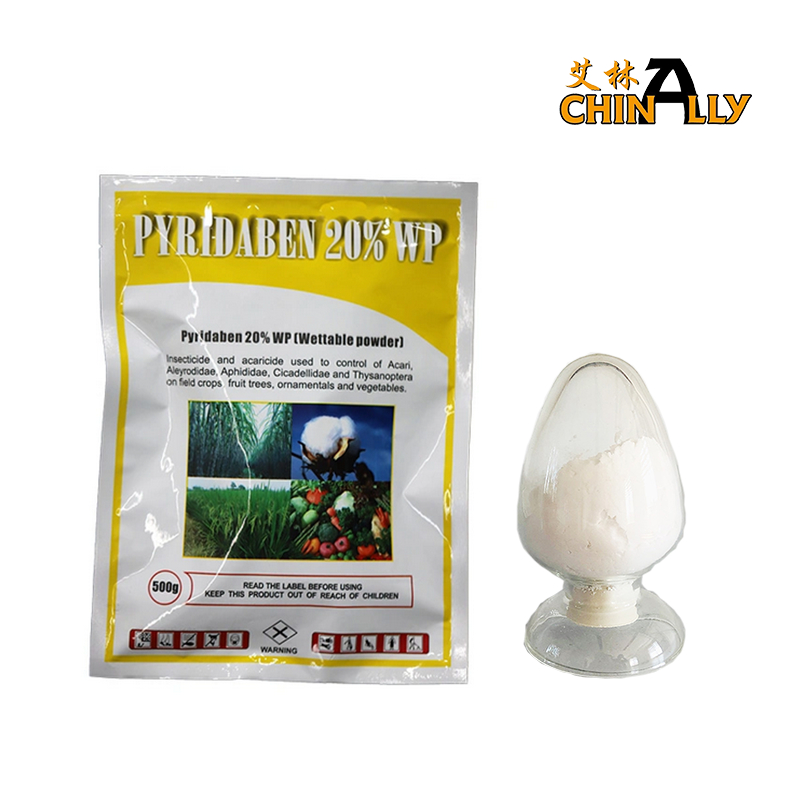While the focus has been on pharmaceuticals, the issue of “Chinese dependence” is coming to the fore, especially post Covid-19, also in pesticides. India’s imports of crop protection chemicals – mainly the technical material or active ingredients that go into making end-use formulations – stood at Rs 9,266.84 crore in 2018-19, most of it coming from China (Rs 4,904.28 crore), US (Rs 1,050.69 crore) and Germany (Rs 614.53 crore).
“Just as in pharma, the government should encourage backward integration by our industry to reduce excessive reliance on imports of technicals, particularly from China,” says Rajesh Aggarwal, managing director of Insecticides (India) Ltd. Miticide Supplier

The Rs 1,250-crore annual sales company – along with UPL, Gharda Chemicals, PI Industries, Meghmani Organics, Indofil Industries, Coromandel International and NACL Industries (formerly Nagarjuna Agrichem) – is among the few major domestic manufacturers of technical grade pesticides.
“We can and should do more. And this is the time for the government to also help,” points out Aggarwal, whose company manufactures technical-grade products that include herbicides (bispyribac-sodium, pretilachlor and atrazine), insecticides (lambda-cyhalothrin, bifenthrin and thiamethoxam) and fungicides (thiophanate methyl).
ISRO launches XPoSat: What is the mission and its significance? Farm and Food Policy: How Modi govt swung from pro-producer to pro-consumer In 2023, Indian science went for the Moon. What's planned for 2024? Click here for more
Significantly, India, in 2018-19, exported crop protection chemicals worth Rs 22,090.18 crore, a large part of it to Brazil (Rs 4,314.74 crore) and the US (Rs 4,238.63 crore). “Our exports are higher than the domestic market, the size of which is Rs 19,000-20,000 crore. Investing in technical manufacturing capacity will allow us to project ourselves as more serious players in the global market. We can emerge as an alternative global supplier to China of both formulation products and technical material,” adds Aggarwal.
The one big opportunity the Indian industry has is to undertake manufacturing of active ingredients that are scheduled to lose patent protection in the next few years.
These include chlorantraniliprole and cyantraniliprole (both blockbuster insecticides of DuPont sold to FMC Corporation of US in 2017, while marketed under ‘Coragen’ and ‘Benavia’ brands, with their patents expiring in 2022 and 2024, respectively), flubendiamide (insecticide molecule of Bayer CropScience sold under ‘Fame’ brand and just gone off-patent) and fluopyram (fungicide, also of Bayer and marketed as ‘Luna’, with patent expiry in 2024).
“The multinationals that have developed these active ingredients simply import them now. The government should speed up the process of granting registration for their manufacture by domestic companies once they have become generic chemicals,” states Aggarwal.
Potential manufacturers are permitted to reverse-engineer proprietary crop protection products even during their period of patent protection. They can further carry out bio-efficacy and residue trials (in soil, water and plants under different agro-climatic conditions), apart from toxicology studies on their proposed generic version. All this data, including information of packaging/labeling and shelf-life, has to be submitted to the Central Insecticides Board and Registration Committee in the Union Agriculture Ministry.
“The problem today is that even after the data is submitted, the grant of registration takes inordinately long time. As a result, we cannot launch any product that has gone off-patent and make it immediately available to farmers at a more competitive rate. Since the registration process is so slow, it discourages domestic manufacturing and India ends up being a large-scale importer of technical material from China, The ultimate loser is the farmer,” claims Aggarwal. His company has been trying to obtain registration for manufacture of dinotefuran technical, a generic insecticide originally developed by Mitsui Chemicals, for almost two years.
Whether that pace would change, after novel coronavirus, has to be seen.
Vandita Mishra writes: If life gives oranges make marmaladePremium Story
Expert Explains: How the Northeast was ‘invented’, 52 years agoPremium Story
ISRO’s New Year launch: Space observatory, X-ray telescopePremium Story
Tavleen Singh writes: Modi's guarantees vs Rahul's promisesPremium Story
Indian economy in 2024: On the cusp of take-offPremium Story
10 extremely useful free websites we tried in 2023Premium Story
My wishlist: What Apple needs to fix in 2024Premium Story
The Bollywood male in 2023: A year-end reflectionPremium Story
India and the two wars that dominated 2023Premium Story

Miticide Insecticide Supplier Harish DamodaranThe writer is the National Rural Affairs and Agriculture Editor for Th... read more